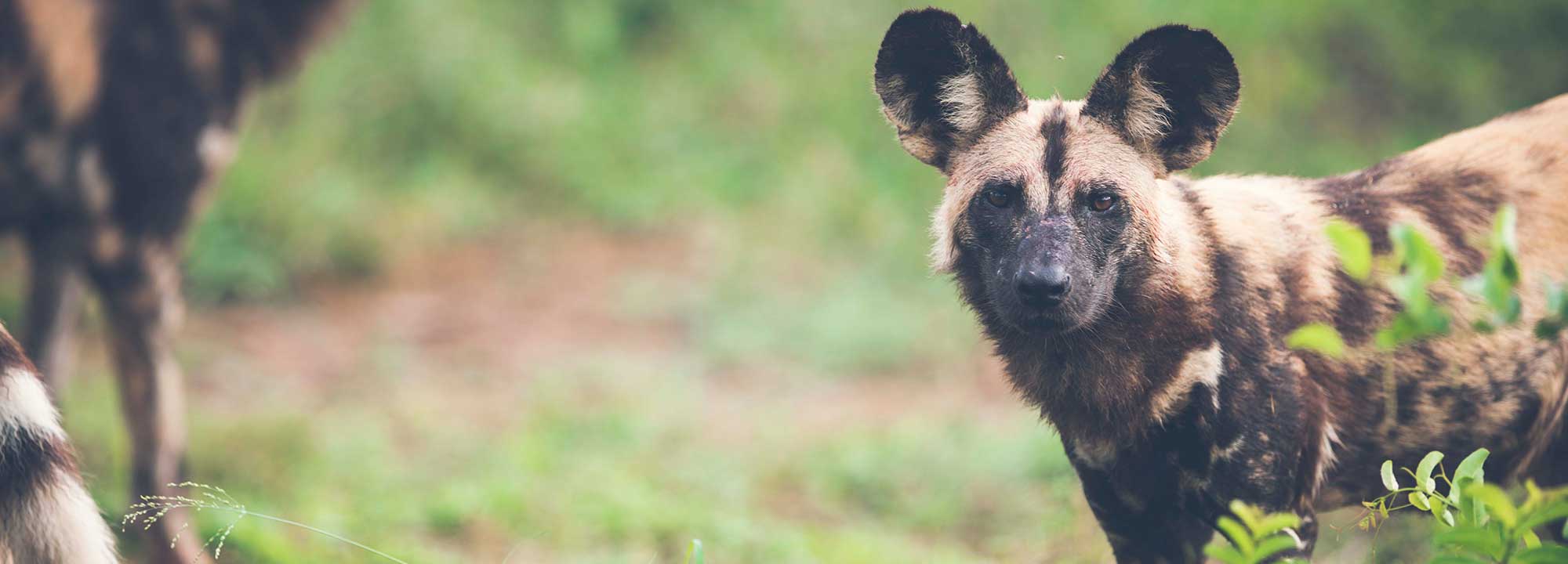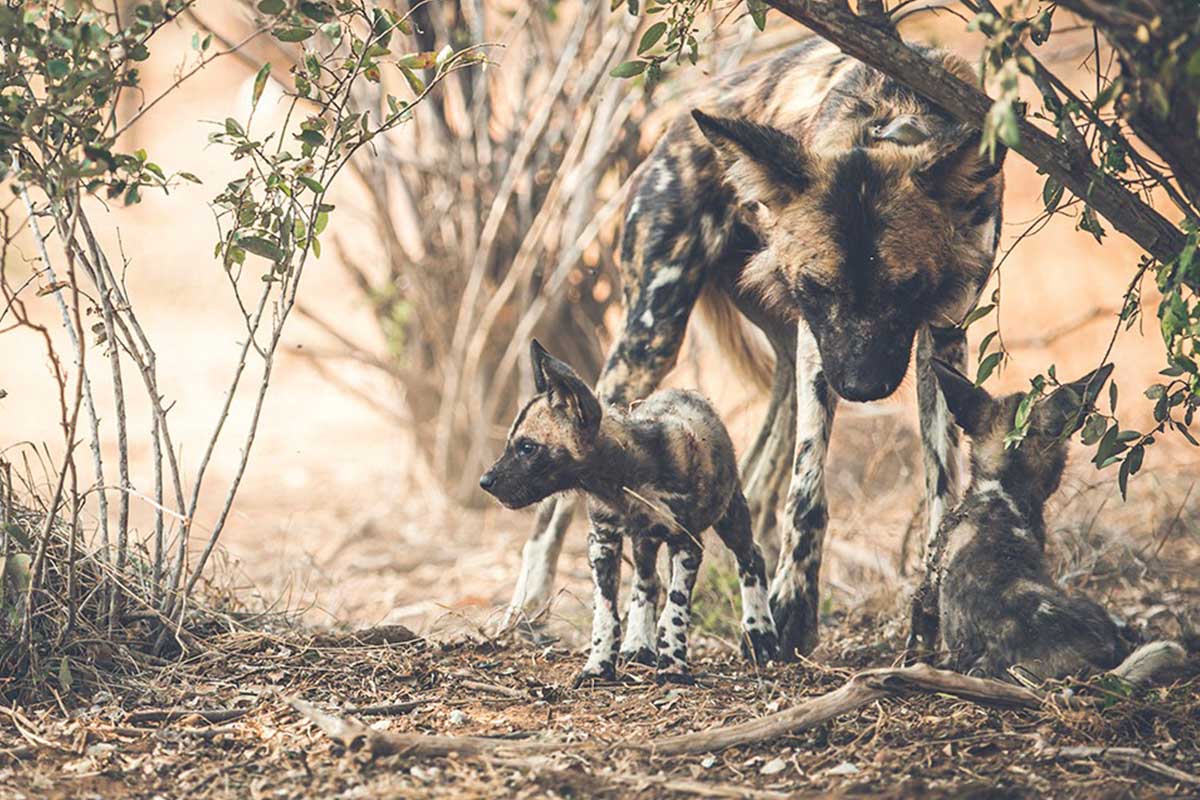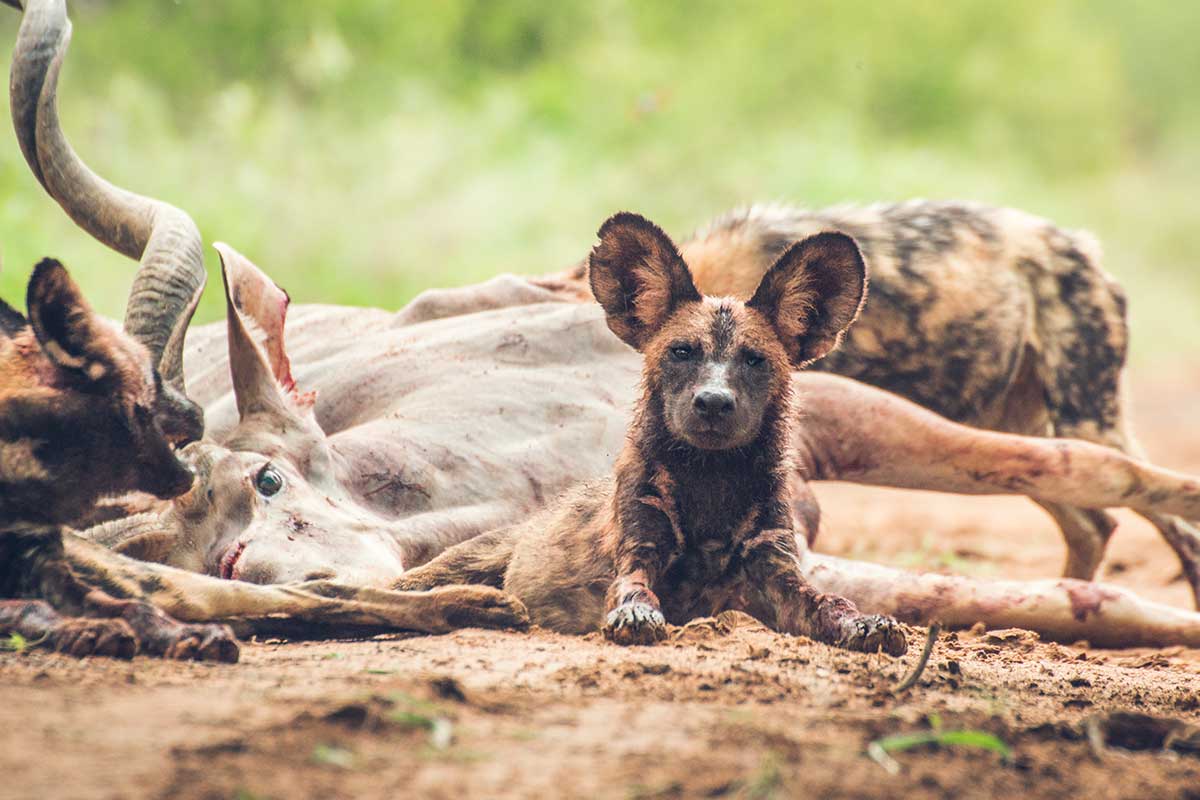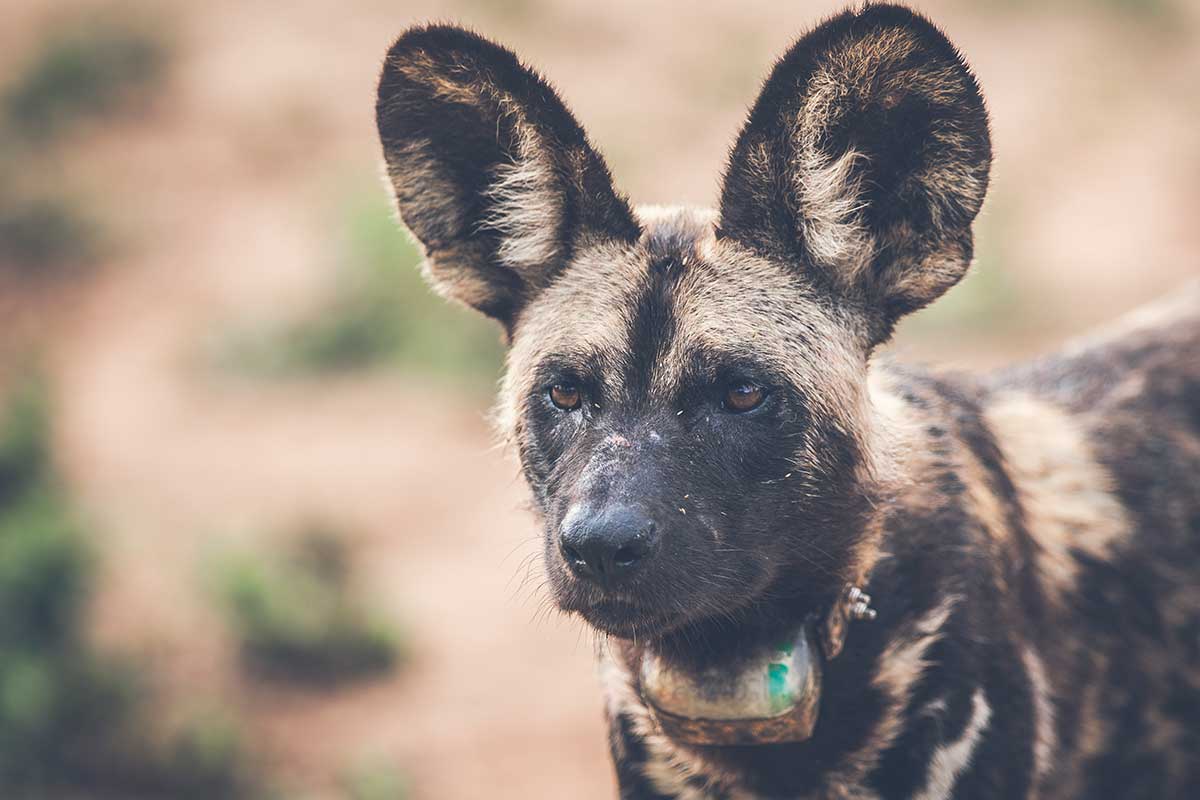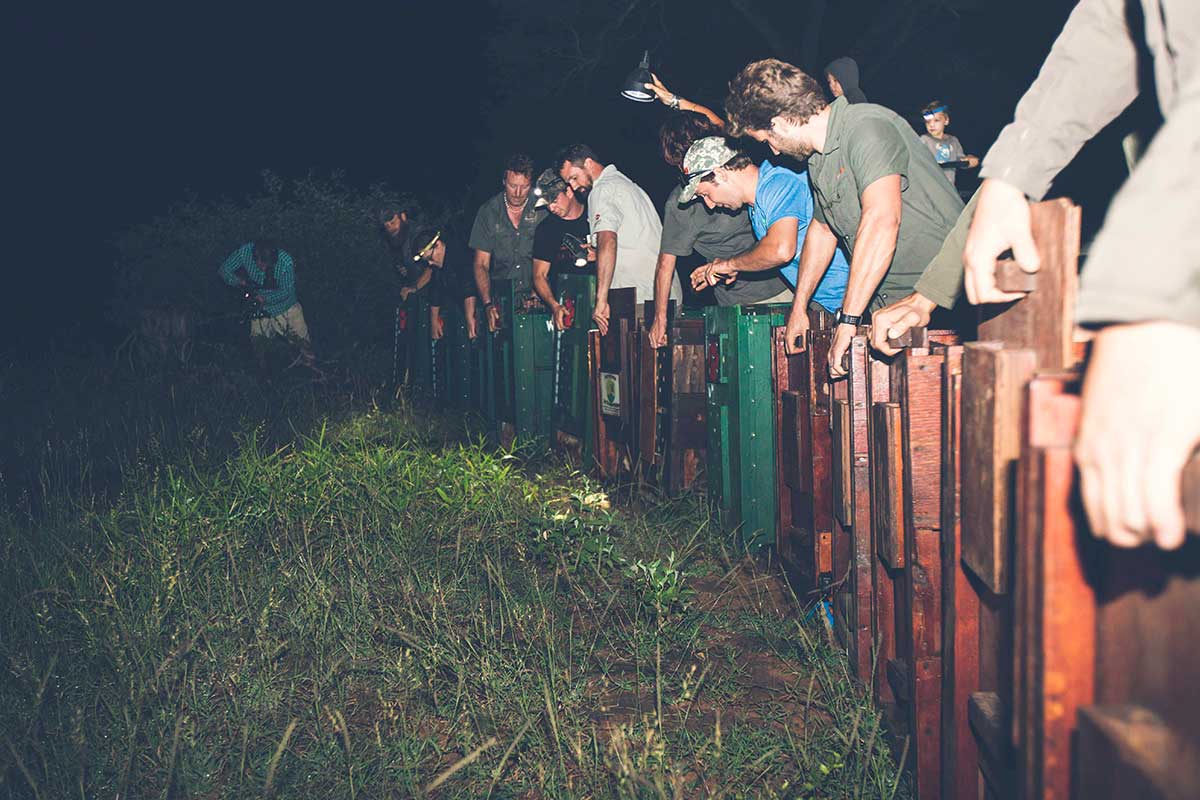The Wild Dog Range Expansion Project, coordinated by the Endangered Wildlife Trust (EWT), goal is to expand safe space suitable for these predators. African wild dogs have become extinct in 25 of the 39 countries they once roamed, making them the second most endangered carnivore on the continent. Reserves of suitable size and prey densities are often limiting factors in the success of wild dog conservation. In 2019, Karingani was identified as a suitable site for an endangered wild dog population reinforcement. A pack of 13 genetically valuable wild dogs was introduced into the Karingani landscape.
African wild dogs have disappeared from much of their former range, threatened by shrinking habitat, persecution, disease, and human activity. While these premier hunters used to roam much of the African continent in numbers of 500,000 or more, the species has suffered a decline in most regions, with shrinking numbers now mostly confined to Southern Africa. The population is currently estimated at less than 6,600 individuals. These limited numbers result in a lowered genetic pool which further threatens their existence in the wild.




